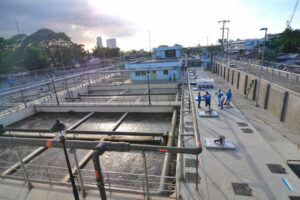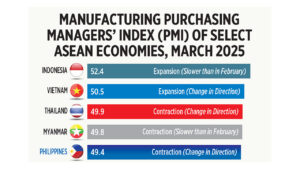Reevaluating a decade of competition law

It has been almost a decade since the passage of Republic Act No. 10667 or the Philippine Competition Act, the country’s primary competition law regulating anti-competitive practices aimed at upholding the constitutional prohibition against monopolies and combinations in restraint of trade.
Since its establishment in 2016, the Philippine Competition Commission has reviewed over 293 M&A transactions with an aggregate value of more than P5.49 trillion. Despite several years of enforcement and the hundreds of transactions reviewed, whether upon notification or motu proprio, the Philippine’s antitrust authority continues to face challenges.
NEED FOR UNIFIED IMPLEMENTING MERGER GUIDELINESOver the years, the PCC has issued various guidelines and notes seeking to clarify transactions not covered by the PCA, assessment of merger control, computation of thresholds, process for filling out and filing notifications and merger review process of the Mergers and Acquisitions Office, among others. While these efforts have been crucial in addressing the gaps in the PCA and its implementing rules and regulations, there remains a need for unified implementing guidelines codifying the PCC’s issuances to streamline efficiencies and facilitate mandatory notifications and/or requests for confirmation of noncoverage therefrom.
LIMITED CAPACITY OF THE PCCThe PCC may have limitations in its capacity to effectively investigate and resolve complex competition cases. For example, the PCC recently released a market study that emphasizes the need for stronger domestic capacities involving competition issues in digital markets. Having only been established nine years ago, and with big and startup tech companies tapping into the Philippine market, comprehensive guidelines regulating competition concerns involving the digital economy and addressing abuse of market dominance issues will ensure that the Philippines’ primary antitrust authority keeps up with the challenges brought by modern technology.
CHALLENGES IN ENFORCEMENTIt is said that one cannot escape the long arm of the law. Section 3 of the PCA provides that the PCA applies not only to persons or entities engaged in any trade, industry and commerce within the Philippines, but also to “international trade having direct, substantial and reasonably foreseeable effects on trade, industry, or commerce in the Philippines, including those that result from acts done outside the Republic of the Philippines.” As such, offshore transactions may fall within the PCC’s ambit if such transaction has direct, substantial and reasonably foreseeable effects on trade, industry, or commerce in the Philippines.
It is well settled that any decision issued without jurisdiction is void and can never become final, and “any writ of execution based on it is likewise void.” Under the 2017 PCC Rules of Procedure, the PCC may acquire jurisdiction over a person by service of summons and voluntary appearance. For foreign corporations not registered in the Philippines, a summons may be served: “(1) on its officers or agents in the Philippines; (2) through the appropriate court in the foreign country with the assistance of the Department of Foreign Affairs; (3) by publication once in a newspaper of general circulation in the country where the respondent may be found and in such places as the PCC may order, posting the summons on the PCC website, and serving a copy thereof by registered mail at the last known address of the respondent; (4) by facsimile or any recognized electronic means that could generate proof of service; or (5) by such other means as the PCC may, in its discretion, direct.”
In principle, the foregoing provisions on service of summons should allow the PCC to catch those who violate the PCA and relevant issuances, but this may require local presence, sophisticated systems, or close coordination with the pertinent government agencies. Nevertheless, while the PCC may acquire jurisdiction over entities overseas through service of summons following the modes provided under its rules and regulations, enforcement, including imposition of penalties, if any, is a different matter and may prove difficult, especially if the parties do not have a local presence.
While the country has come a long way in leveling the playing field for market players in the country, efforts are needed to ensure effective implementation of a framework envisioned to promote competition and achieve the objectives of the PCA. n
The views and opinions expressed in this article are those of the author. This article is for general informational and educational purposes only and not offered as and does not constitute legal advice or opinion.
Justine A. Navarro is a senior associate of the Corporate and Special Projects Department of the Angara Abello Concepcion Regala & Cruz Law Offices (ACCRALAW).
(632) 8830 8000




